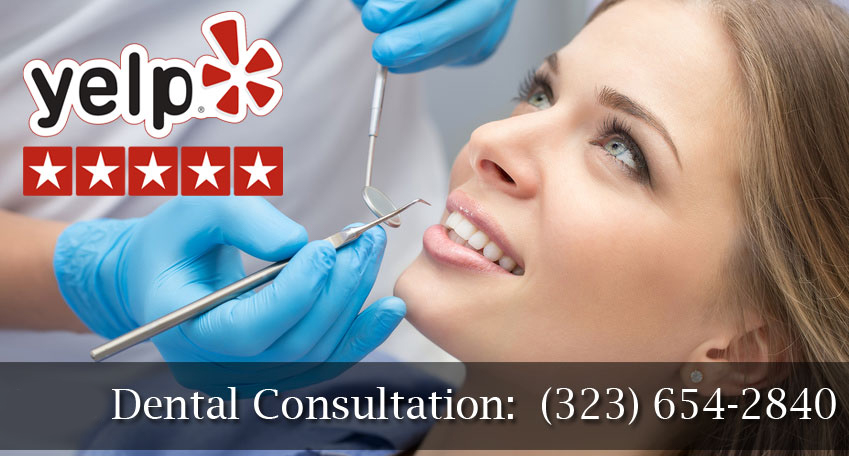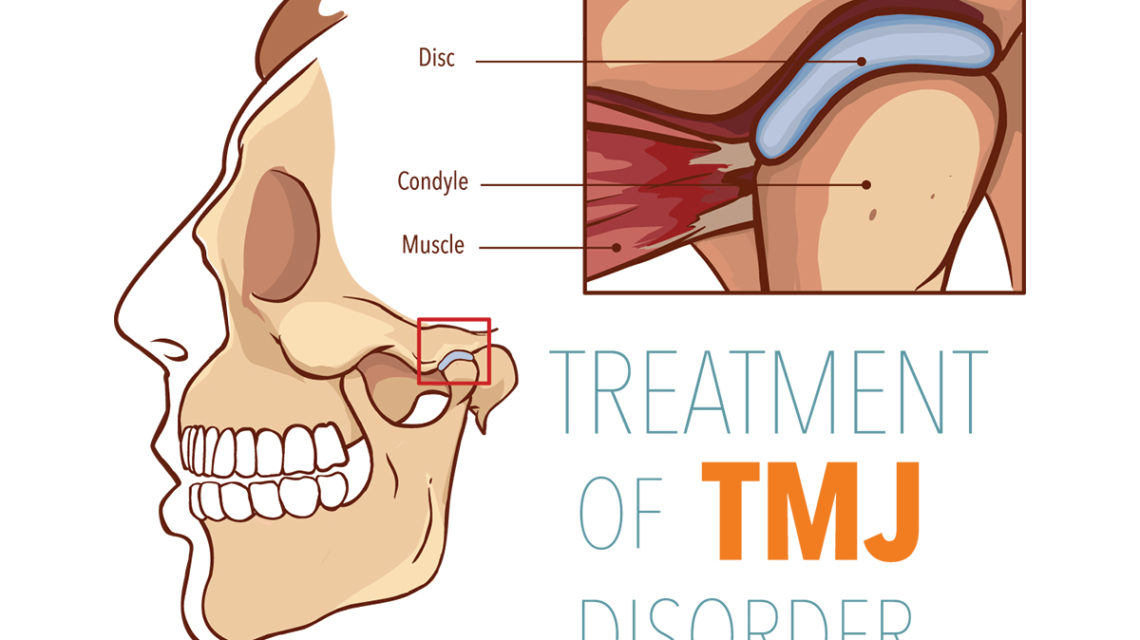What Are Temporomandibular Joint Disorders?
Temporomandibular joint disorders, or TMJ, are a malfunction of the joint or joints that connect the jawbone to the skull and the malfunctions can range from mildly annoying to a complete inability to use the jaw. There’s one joint on either side of the jaw, and they’re called the temporomandibular joints, thus the name of the disorder.
Usually, temporomandibular joint disorder occurs as a result of trauma to the face but it can also occur as the result of bruxism, which is clenching the jaw and grinding the teeth. During TMJ, you may experience:
- Pain in one or both joints
- Facial pain
- Popping or clicking sounds when you open or close your mouth
- Headaches or migraines
- Tinnitus
- Difficulty with opening or closing your mouth
- Soreness or tenderness in your jaw
- Pain when you chew or bite down
TMJ can be temporary or it can be a permanent condition. It can be exacerbated by:
- Smoking
- Intense emotions such as anger, anxiety, and stress
- Alcohol and caffeine
- Psychiatric medications
Severe cases of TMJ can result in lockjaw.
Does Botox Help TMJ?
Botox is a neurotoxin that helps alleviate the symptoms of TMJ and lockjaw. Although Botox has been efficacious in treating TMJ to date, the U.S. Food and Drug Administration, or FDA, hasn’t yet approved it as a suitable remedy for TMJ. In one study of 26 patients, Botox injections caused a significant decrease in pain and a significant increase in their ability to use their mouths. The effects lasted as long as three months after the treatment, but since the study was small, it wasn’t sufficient proof for the FDA. Two other studies have shown similar results but Botox treatments for TMJ remain legal but unapproved. Botox treatments are, however, approved for other conditions related to TMJ, such as chronic migraine headaches, lazy eye, hyperhidrosis, and cervical dystonia.
Does Botox Help TMJ Permanently?
Botox injections may be permanently effective for your TMJ or you may need repeat injections, depending on the cause of your TMJ. The number of Botox treatments you’ll need will depend on the reason you have TMJ, but Dr. Vafa will apprise you whether yours is a temporary issue or a permanent condition.
What Are The Benefits Of Botox For TMJ?
Botox is used to alleviate wrinkles and as an anti-aging serum by many cosmetic surgeons. It’s also used for other chronic issues, such as migraines and excessive sweating. For those who have TMJ, it can alleviate their pain and restore the normal function of their jaws, particularly for those who have lockjaw.
Are There Side Effects From Botox Treatments For TMJ?
As with any medication, there can be side effects. Those most frequently reported for Botox injections include:
- Bruising
- Headaches
- Flu-like symptoms
- Muscle weakness
- Nausea
- Pain
- Redness in the area of the injection
- Respiratory infections
- Temporary drooping of the eyelids
Some of the symptoms appear and disappear within the first week after the injection. Since Botox is a neurotoxin, it essentially paralyzes the muscles in the area and can sometimes cause the appearance of a fixed smile that may remain for up to eight weeks.
What’s The Procedure For Getting Botox Treatments For TMJ?
Botox injections are non-surgical procedures that are performed on an outpatient basis. Most healthcare providers will perform the procedure in their office and a treatment session usually lasts between 10 and 30 minutes. Many people require a session every few months.
Your healthcare provider injects Botox into your forehead, jaw muscles, and temples. Other areas may receive injections depending on your symptoms and your physiology. Your dentist will advise you of the number of injections you’ll need. You may feel a small sting when the needle is inserted, similar to a pinprick, but any discomfort can be treated with numbing cream or a cold pack.
Although patients may see improvement within a few days, it normally takes several days for them to see significant improvement in their symptoms. There’s no downtime after the injections, you can immediately resume your normal activities.
Patients are cautioned, however, to avoid massaging or rubbing the injection site for several hours and to remain upright for several hours so that the toxin doesn’t spread to other muscles.
What’s The Cost Of Botox For TMJ Treatment?
The TMJ treatment cost for each Botox injection will be unique to the patient and will depend on the number of injections needed as well as the patient’s insurance coverage. Since Botox isn’t FDA-approved for treatment of TMJ, your insurance will most likely not cover your TMJ treatment cost. However, it can’t hurt to ask, and the benefits of Botox can alleviate many of your TMJ symptoms.
On average, patients can expect to pay between $15 and $17 per unit of Botox, and most of them will probably need between 50 and 70 units. When you come to our office for your consultation, however, we’ll provide you with an estimate of the cost of Botox for TMJ treatment, so you’ll know what to expect.
Where Can I Find Botox Treatment Los Angeles?
If you live in the West Hollywood area and are looking for a West Hollywood dentist, then call West Hollywood Holistic and Cosmetic Dental Care at (323) 654-2840 for an appointment with Bruce Vafa DDS.
Dr. Vafa has been practicing holistic dentistry since 1989 and specializes in children’s dentistry. He realizes that you have extensive choices for a West Hollywood Dentist, so he strives to provide the best dental care possible at affordable rates. When you need Botox treatments for your temporomandibular joint disorder, you can do no better than Bruce Vafa DDS. at the West Hollywood Holistic and Cosmetic Dental Care office. Call us today. You’ll be glad you did.
Can botox really helps with TMJ pain and headaches
Botox is one of the most popular cosmetic procedures today. It is also a great option for headaches, TMJ (temporomandibular joint) disorders, and arthritis. Most people with TMJ and headache disorders have a mild form of the condition. But some people may experience a more severe form of these symptoms. In many cases, these symptoms can be treated with botox injections or other procedures in West Hollywood by Dr. Bruce Vafa DDs, who does TMJ injections. It’s an FDA-approved treatment that can help ease your symptoms and make you feel better.
What is Botox?
This is a medicine that temporarily freezes facial muscles, which can temporarily relieve muscle spasms, headaches, and migraines. This is a neurotoxin that affects your nervous system, specifically blocking the transmission of messages from nerves to muscles. When injected into the facial muscles, it temporarily paralyzes them, causing them to relax.
Botox has been used for many years as a treatment for severe migraine headaches and TMJ disorders. Still, it’s recently gained attention in other areas like tension headaches and migraines due to its effectiveness against these problems.
Botox will not treat a headache unless there are compression issues in the muscles around your head or neck causing pain. It won’t affect tension headaches alone; they also need other treatments (such as relaxation techniques).
How it works:
Botox works by relaxing the muscles in your face that cause pain or tension. When those muscles are relaxed, they usually return to normal. Botox injections are safe, effective, and easy to administer. Most people experience immediate relief from their symptoms after receiving a Botox injection. Search for Botox for TMJ near me if you don’t know any dentist around your area and get treatment from the best. The effects last between four and six months, depending on how often you get injections. You may need more than one treatment to achieve your desired results.
About TMJ
TMJ is a condition that causes your jaw to move out of position when you chew, yawn or talk. The muscles that control the movement of your jaw are weak, resulting in chewing and swallowing problems. You can also get TMJ if you experience headaches caused by muscle tension in your facial muscles. These headaches are known as migraine headaches and are often preceded by auras (nagging sensations) or numbness behind the eyes. TMJ problems also cause jaw pain, muscle spasms, and even tinnitus (ringing in the ears). This can lead to discomfort at work or school.
The most common treatment for TMJ involves oral medications such as ibuprofen or naproxen sodium (Aleve). These medications reduce inflammation in your head and neck but aren’t very effective at treating TMJ. Some of the most common causes of TMJ pain include:
Frequent jaw clenching
Bad habits such as clenching your teeth or grinding them together can aggravate your symptoms. This is known as bruxism, and it can cause direct damage to your jawbone and teeth. You might also have a habit of clenching your jaw when stressed, which can lead to TMJ problems.
Stress
Stress is a significant factor in TMJ pain. You may be more likely to experience TMJ pain if you suffer from chronic stress. Stress can cause muscle tension in your jaw and neck, which can then cause the muscles around your joints to tighten and become strained.
Stressful events such as work, school, or family problems can cause stress that lasts for a long time. This kind of stress often affects the left side of your body more than the right side of your body. When this happens, it may be harder for you to relax during stressful times. However, it’s important to remember that stress is a normal part of life – hence, it’s something that you need to manage to stay healthy.
Tension in the neck muscles
Tension in the neck and face muscles is called cervicogenic headache (CH). CH is caused by tension in muscle groups around the neck and face that are part of your normal chewing and facial movement muscles. Putting too much stress on these muscles can cause them to tighten, which then causes pain in your jaw or headaches in other parts of your head or neck area, especially with movement.
It’s also possible to have CH without any symptoms unless you’re doing something that causes pain while you’re sleeping or eating (such as chewing gum). If you experience this, you can search for Botox for TMJ near me to get some help.
Restless sleep or poor quality sleep (too little or too much)
Poor quality sleep can cause pain because it affects how your brain responds to signals from various parts of your body. This includes those that control muscle tone. Poor quality sleep can lead to TMJ pain if you’re unable to relax your face and mouth while sleeping, which means that they tend to stay clenched throughout the night.
Poor posture
Poor posture also leads to TMJ pain because it strains the jaw joints that are already under strain from clenching your teeth during stressful situations or intense emotions like anger or fear (especially when those emotions are related to stress).
An injury can also cause TMJ to the jaw, such as a fracture or dislocation. It could also be caused by an infection or inflammation in your mouth.
Botox for TMJ
We’ve all heard about Botox for wrinkles, and now it’s being used for a condition that has nothing to do with the face — TMJ. Dentists and orthodontists use Botox injections to help patients who experience headaches and jaw clenching. So if you experience this condition, you can google search Botox for TMJ near me to get some options.
Botox injections help relieve the tension in facial muscles caused by TMJ pain, migraines, and other conditions that cause chronic headaches. Botox can also be used to treat chronic migraine headaches by blocking nerve signals between brain cells — thereby reducing their activity — which reduces pain signals sent to your brain’s pain receptors.
Botox treatment can also reduce inflammation and your risk of developing arthritis later in life.
Risks
Risks and side effects are associated with this treatment, which must be discussed before it is performed. If in West Hollywood, you can visit a doctor who does TMJ injections like one known as Dr. Bruce Vafa DDs to give you more information, including the risks involved in this procedure. The most significant risk is that Botox may cause permanent weakness in your jaw muscles. This could result in a permanent change in the shape of your face and mouth.
- A reaction at the injection site can cause redness, swelling, or bruising.
- An allergic reaction to the ingredients used in preparing the medication
- A drop in blood pressure could cause dizziness or fainting.
- Inability to open your mouth wide enough to speak or eat
If you decide to try this treatment, contact us. Located in West Hollywood, Dr. Bruce Vafa DDs, who does TMJ injections in this facility, will get to clear any concerns you may have before starting treatment. This is so you can learn more about this procedure and what the side effects might look like so that you can make an informed decision about whether or not you want to go through with this treatment!
So How botox can help TMJ and headaches
Botox is one of the most popular cosmetic procedures today. It is also a great option for headaches, TMJ (temporomandibular joint) disorders, and arthritis. Most people with TMJ and headache disorders have a mild form of the condition. But some people may experience a more severe form of these symptoms. In many cases, these symptoms can be treated with botox injections or other procedures in West Hollywood by Dr. Bruce Vafa DDs, who does TMJ injections. It’s an FDA-approved treatment that can help ease your symptoms and make you feel better.
What is Botox?
This is a medicine that temporarily freezes facial muscles, which can temporarily relieve muscle spasms, headaches, and migraines. This is a neurotoxin that affects your nervous system, specifically blocking the transmission of messages from nerves to muscles. When injected into the facial muscles, it temporarily paralyzes them, causing them to relax.
Botox has been used for many years as a treatment for severe migraine headaches and TMJ disorders. Still, it’s recently gained attention in other areas like tension headaches and migraines due to its effectiveness against these problems.
Botox will not treat a headache unless there are compression issues in the muscles around your head or neck causing pain. It won’t affect tension headaches alone; they also need other treatments (such as relaxation techniques).
How it works:
Botox works by relaxing the muscles in your face that cause pain or tension. When those muscles are relaxed, they usually return to normal. Botox injections are safe, effective, and easy to administer. Most people experience immediate relief from their symptoms after receiving a Botox injection. Search for Botox for TMJ near me if you don’t know any dentist around your area and get treatment from the best. The effects last between four and six months, depending on how often you get injections. You may need more than one treatment to achieve your desired results.
About TMJ
TMJ is a condition that causes your jaw to move out of position when you chew, yawn or talk. The muscles that control the movement of your jaw are weak, resulting in chewing and swallowing problems. You can also get TMJ if you experience headaches caused by muscle tension in your facial muscles. These headaches are known as migraine headaches and are often preceded by auras (nagging sensations) or numbness behind the eyes. TMJ problems also cause jaw pain, muscle spasms, and even tinnitus (ringing in the ears). This can lead to discomfort at work or school.
The most common treatment for TMJ involves oral medications such as ibuprofen or naproxen sodium (Aleve). These medications reduce inflammation in your head and neck but aren’t very effective at treating TMJ. Some of the most common causes of TMJ pain include:
Frequent jaw clenching
Bad habits such as clenching your teeth or grinding them together can aggravate your symptoms. This is known as bruxism, and it can cause direct damage to your jawbone and teeth. You might also have a habit of clenching your jaw when stressed, which can lead to TMJ problems.
Stress
Stress is a significant factor in TMJ pain. You may be more likely to experience TMJ pain if you suffer from chronic stress. Stress can cause muscle tension in your jaw and neck, which can then cause the muscles around your joints to tighten and become strained.
Stressful events such as work, school, or family problems can cause stress that lasts for a long time. This kind of stress often affects the left side of your body more than the right side of your body. When this happens, it may be harder for you to relax during stressful times. However, it’s important to remember that stress is a normal part of life – hence, it’s something that you need to manage to stay healthy.
Tension in the neck muscles
Tension in the neck and face muscles is called cervicogenic headache (CH). CH is caused by tension in muscle groups around the neck and face that are part of your normal chewing and facial movement muscles. Putting too much stress on these muscles can cause them to tighten, which then causes pain in your jaw or headaches in other parts of your head or neck area, especially with movement.
It’s also possible to have CH without any symptoms unless you’re doing something that causes pain while you’re sleeping or eating (such as chewing gum). If you experience this, you can search for Botox for TMJ near me to get some help.
Restless sleep or poor quality sleep (too little or too much)
Poor quality sleep can cause pain because it affects how your brain responds to signals from various parts of your body. This includes those that control muscle tone. Poor quality sleep can lead to TMJ pain if you’re unable to relax your face and mouth while sleeping, which means that they tend to stay clenched throughout the night.
Poor posture
Poor posture also leads to TMJ pain because it strains the jaw joints that are already under strain from clenching your teeth during stressful situations or intense emotions like anger or fear (especially when those emotions are related to stress).
An injury can also cause TMJ to the jaw, such as a fracture or dislocation. It could also be caused by an infection or inflammation in your mouth.
Botox for TMJ
We’ve all heard about Botox for wrinkles, and now it’s being used for a condition that has nothing to do with the face — TMJ. Dentists and orthodontists use Botox injections to help patients who experience headaches and jaw clenching. So if you experience this condition, you can google search Botox for TMJ near me to get some options.
Botox injections help relieve the tension in facial muscles caused by TMJ pain, migraines, and other conditions that cause chronic headaches. Botox can also be used to treat chronic migraine headaches by blocking nerve signals between brain cells — thereby reducing their activity — which reduces pain signals sent to your brain’s pain receptors.
Botox treatment can also reduce inflammation and your risk of developing arthritis later in life.
Risks
Risks and side effects are associated with this treatment, which must be discussed before it is performed. If in West Hollywood, you can visit a doctor who does TMJ injections like one known as Dr. Bruce Vafa DDs to give you more information, including the risks involved in this procedure. The most significant risk is that Botox may cause permanent weakness in your jaw muscles. This could result in a permanent change in the shape of your face and mouth.
- A reaction at the injection site can cause redness, swelling, or bruising.
- An allergic reaction to the ingredients used in preparing the medication
- A drop in blood pressure could cause dizziness or fainting.
- Inability to open your mouth wide enough to speak or eat
If you decide to try this treatment, contact us at https://www.holisticsmilecare.com/. Located in West Hollywood, Dr. Bruce Vafa DDs, who does TMJ injections in this facility, will get to clear any concerns you may have before starting treatment. This is so you can learn more about this procedure and what the side effects might look like so that you can make an informed decision about whether or not you want to go through with this treatment!






